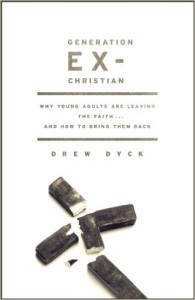“You can’t tell me there’s a God.”
My father’s words hung in the air like fog and I didn’t know what to say.
“After all I saw in the war, you can’t tell me there’s a God.”
It was a phone call I’ll never forget. My father was telling me, for the first time, why he was an atheist. He was raised in a Christian home near the coal mines of eastern Pennsylvania. His father was a Welsh immigrant who came to America circa 1900 through the gates of Ellis Island.
 My Dad graduated from high school and left home immediately, having no desire to follow in his father’s coal miner footsteps. So he enlisted in the Army and headed to Europe, one of 600,000 American soldiers who fought in the Battle of the Bulge, “the largest and bloodiest battle fought by the United States in World War II” (Wikipedia). The numbers are staggering – 89,000 casualties and 19,000 killed . . . in six weeks!
My Dad graduated from high school and left home immediately, having no desire to follow in his father’s coal miner footsteps. So he enlisted in the Army and headed to Europe, one of 600,000 American soldiers who fought in the Battle of the Bulge, “the largest and bloodiest battle fought by the United States in World War II” (Wikipedia). The numbers are staggering – 89,000 casualties and 19,000 killed . . . in six weeks!
Understandably, my father didn’t talk about the war. After he died, my mother told me he was tormented by nightmares for years. And how his comrades were dying left and right, and there was nothing he could do to save any of them.
Trapped in a foxhole surrounded by human body parts can make a man question both the love of God and His existence. The end result was a faith shattered by the indescribable insanity of war.
 My father became what author Drew Dyck calls a “leaver” – a person who was brought up in a Christian environment but then leaves the faith. In recent years, the number of “leavers” has increased dramatically and Mr. Dyck has written a book to explore the reasons for these defections. Generation ex-Christian: Why Young Adults are Leaving the Faith and How to Bring Them Back is the title of the book, which I highly recommend for these reasons.
My father became what author Drew Dyck calls a “leaver” – a person who was brought up in a Christian environment but then leaves the faith. In recent years, the number of “leavers” has increased dramatically and Mr. Dyck has written a book to explore the reasons for these defections. Generation ex-Christian: Why Young Adults are Leaving the Faith and How to Bring Them Back is the title of the book, which I highly recommend for these reasons.
Reason #1. You’ll get a valuable education about current trends in Western society that form the cultural backdrop to this mass exodus of young people from the church. Drew identifies six types of leavers: 1) postmodern leavers; 2) recoilers; 3) modern leavers; 4) neo-pagans; 5) rebels; and 6) drifters. Three of these categories are reflective of recent developments in the worldviews of many in society today: postmodern leavers, modern leavers, and neo-pagans. If you are unfamiliar with these categories, you would do well to learn about them here. The author has his pulse on the heartbeat of secular thinking. Christians need to know not only what people believe but why they have formulated those beliefs. This book does an excellent job of providing the information needed to understand the people who hold these views.
Reason #2. Drew not only identifies “newer” reasons for leaving the faith (leaver categories 1, 3 and 4), but he also presents the more obvious or “older” reasons for defection via leaver categories 2, 5 and 6: recoilers, rebels and drifters.
People have been leaving the faith for decades, as evidenced by my father’s abandonment in 1945. In fact, one can easily argue that leavers have been around as long as the church has been in existence. Consider 1 John 1:19 – “They went out from us, but they did not really belong to us. For if they had belonged to us, they would have remained with us; but their going showed that none of them belonged to us.”
Who is the Apostle John talking about? Leavers. When did he write this? 2,000 years ago. You remember Judas, don’t you? Even one of the 12 Apostles was a leaver.
Reason #3. As indicated in the title, the author also explains “how to bring them back.” You’ll learn how to understand leavers so you can help them find their way home.
This book contains much more than an analysis of why people leave the faith. It is also a much-needed handbook on how to fulfill the Great Commission. Generation ex-Christian is a practical treatise on the heart of God, who loves all leavers and wants nothing more than to see them return to Him. After explaining what makes each leaver tick, you’ll find a plethora of insights that will equip you to approach any leaver with compassion and wisdom.
Reason #4. This is a more personal reason for liking this book: my life has been filled with the stories of leavers.
My father was a leaver. He best fits into category 2, a recoiler. He experienced the trauma of war and could not reconcile man’s cruelty with the existence of the “good” God of the Bible. His response was to reject this God and walk away from the faith.
 I didn’t know how to talk to my father. Conversation with him was always difficult. I later gave him a book and asked him to read it. To my surprise, he did. The book: One Heartbeat Away: Your Journey Into Eternity, by Mark Cahill. Then he called me and said, “Maybe it’s time for me to make a change.” Another phone call I’ll never forget! Before dying in 2010, he made a profession of faith and enlisted in the ranks of ex-leavers at the age of 86.
I didn’t know how to talk to my father. Conversation with him was always difficult. I later gave him a book and asked him to read it. To my surprise, he did. The book: One Heartbeat Away: Your Journey Into Eternity, by Mark Cahill. Then he called me and said, “Maybe it’s time for me to make a change.” Another phone call I’ll never forget! Before dying in 2010, he made a profession of faith and enlisted in the ranks of ex-leavers at the age of 86.
Why did I give him a book? Because reading a book is what God used to bring me back to the faith.
I, too, was a leaver. My father’s atheism prevented me from learning about the faith as a child. My first exposure to biblical Christianity was in high school. A friend invited me to his church, where I heard the gospel and professed faith at age 16. But at age 26 I left Christianity. I can identify with several of Drew’s categories, but category 5 describes me best. I’m a rebel.
 I spent 20 years in a spiritual no-man’s land, ignoring God and denying His existence, determined to be the master of my fate and the captain of my soul. But then my father’s cousin, an Episcopalian minister, gave me a book and asked me to read it. To my surprise, I did. The book: Mere Christianity, by C.S. Lewis. And God used Lewis’ book to bring me to my knees and I joined the ranks of ex-leavers at the age of 46.
I spent 20 years in a spiritual no-man’s land, ignoring God and denying His existence, determined to be the master of my fate and the captain of my soul. But then my father’s cousin, an Episcopalian minister, gave me a book and asked me to read it. To my surprise, I did. The book: Mere Christianity, by C.S. Lewis. And God used Lewis’ book to bring me to my knees and I joined the ranks of ex-leavers at the age of 46.
I praise God today for Drew Dyck and what he’s done to help the evangelical church make disciples of leavers.
If you are reading this review, you likely know a leaver or someone who is about to leave. What can you do to help the leavers in your life? First, get this book and study it. Let Drew Dyck teach you how to love, understand and converse with a leaver. Let him show you what to say, what not to say, and what to do so that leavers become Christ-followers.
Next, get on your knees and pray, for our God is the God of second chances and changed lives. Then spend time with leavers and allow God to use you to lead them on their journey home. May He empower us to bring the leavers back!
NOTE: Drew Dyck is managing editor of Leadership Journal, a publication of Christianity Today. He has also written the book Yawning at Tigers: You Can’t Tame God, So Stop Trying. Click here to read my review of Yawning at Tigers.
- 7 Bible Verses about God’s Love - March 14, 2025
- Would A Loving God Send Anyone to Hell? - March 5, 2025
- The Whole Bible in Four Words - February 26, 2025

Pingback: My Top 5 Books of 2015 | God Wrote The Book